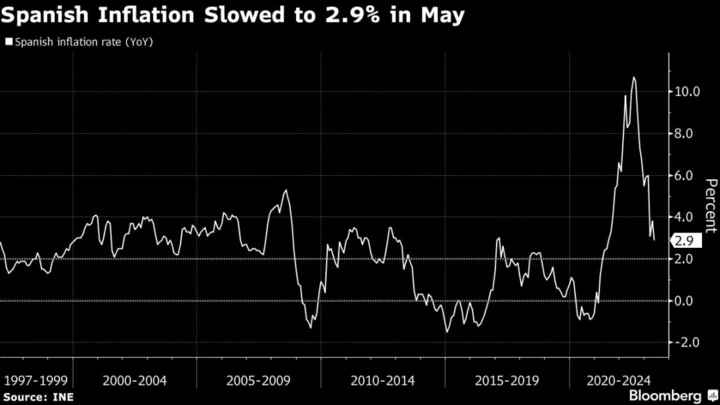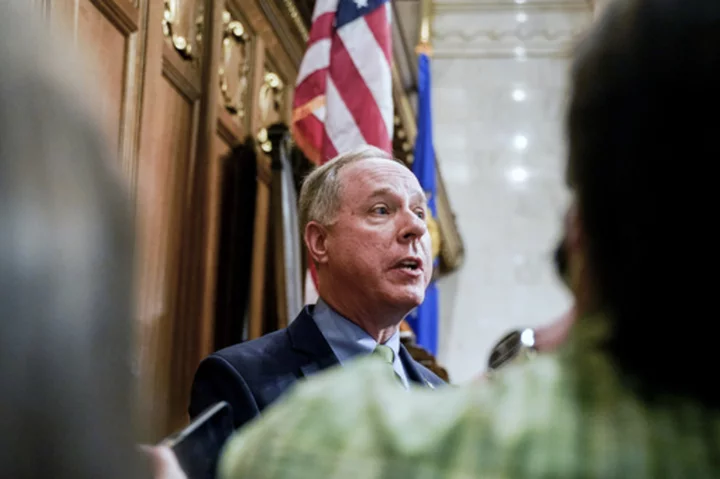Spanish inflation slowed by more than anticipated, supporting the European Central Bank officials who say the continent’s historic price spike is fading and interest-rate increases can soon end.
May’s reading moderated to 2.9% — the least since July 2021 — as fuel costs fell and the growth in food prices eased. The result follows April’s uptick to 3.8% and is well below the 3.3% median estimate in a Bloomberg survey of economists.
There was good news, too, on underlying inflation as the gauge that excludes the costs of energy and some food items fell for a third straight month, though it remained elevated at 6.1%.
Government bonds rallied and the euro extend losses after the data, weakening 0.3% to a two-month low of $1.0673. Traders trimmed bets on future rate hikes but are still more than fully pricing another half-point of increases this year.
Tuesday’s data are the first in a raft of consumer-price releases from the region. France, Italy and Germany report on Wednesday, before the 20-nation euro area publishes its own numbers a day later.
While Spain has of late boasted by far the slowest inflation among the euro zone’s largest economies, it’s demonstrating the same trend: a faster retreat in headline price gains than in the core measure.
With ECB officials primarily watching the latter as a guide to when to conclude their unprecedented monetary-tightening campaign, economists and investors expect at least two more quarter-point rate increases to come.
Some policymakers reckon hikes could stretch into September, potentially pushing the deposit rate to 4% from 3.25% now to get inflation back to the 2% goal.
“We think that we still have some way to go in tightening monetary policy, although we also think that we are closer to the end,” Spanish central bank Governor Pablo Hernandez de Cos said Monday.
May’s slowdown in inflation will come as relief for Spanish Prime Minister Pedro Sanchez. After his left-wing coalition suffered heavy losses in Sunday’s local elections, he unexpectedly called a snap election for July 23.
--With assistance from Joel Rinneby, Joshua Robinson and Alice Gledhill.
(Updates with market reaction in fourth paragraph.)









